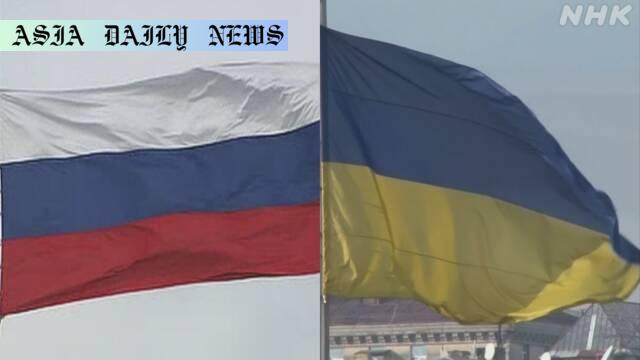Kursk: A senior Russian military official says troops have regained over 800 square kilometers of Ukrainian-held areas in the region.
- Russian troops recovered over 60% of Ukrainian-held land in Kursk.
- Russia regains initiative in the western Russian region.
- Ukraine struggles with military production and mobilization losses.

Introduction: Kursk and the Ongoing Conflict
The ongoing conflict between Russia and Ukraine has reached a pivotal moment, with Russia reportedly regaining significant ground in the Kursk region. A senior military official, Colonel General Sergei Rudskoi, has disclosed that Russian forces have reclaimed over 800 square kilometers—equating to more than 60% of the territory previously controlled by Ukraine. This development marks a significant shift in the dynamics of the region, giving Russia a commanding position in this western Russian area.
Recent Developments in Kursk
Colonel General Rudskoi announced these developments during an interview with Krasnaya Zvezda, a publication operated by Russia’s defense ministry. According to his statements, Russian forces have not only reclaimed significant land but also regained strategic initiative in the region. This ongoing incursion into Kursk by Ukrainian forces, which began in August last year, has met with substantial resistance and counteraction by Russian military forces.
Impact on Contested Territories
Beyond Kursk, Rudskoi elaborated on operations in four Ukrainian regions that Russia claims to have annexed in 2022: Donetsk, Zaporizhzhia, Kherson, and Luhansk. Russian forces have reportedly cleared Ukrainian nationalists from approximately 75% of the territories in Donetsk, Zaporizhzhia, and Kherson. The Luhansk region, according to the general, is mostly under Russian control, with less than 1% remaining to be “liberated.” These statistics underscore Russia’s focus on consolidating territorial gains and extending their influence.
Military and Economic Challenges for Ukraine
Rudskoi also touched upon Ukraine’s deepening military and economic challenges. He stated that Ukraine has effectively lost its ability to produce essential weapons, equipment, and ammunition due to the sustained conflict. This has become a critical issue for Kyiv, as it hampers the nation’s ability to maintain prolonged military actions or replace combat losses through mobilization efforts. These challenges have positioned Ukraine in a significantly disadvantaged position on the battlefield, according to Russian sources.
The Larger Geopolitical Context
The developments in Kursk and other contested regions have broad implications for the wider geopolitical situation. Russia’s claimed victories come amid widespread international condemnation and strategic posturing by NATO and Western allies. The shift in control over Kursk and other key territories adds complexity to diplomatic efforts aimed at resolving the conflict, further deepening the rift between Russia and the West. Meanwhile, Ukraine continues to urge the international community for sustained support, including advanced weaponry and economic aid, to counterbalance these pressing challenges.
Potential Outcomes and the Humanitarian Impact
While Russia’s advances may indicate military success, the broader humanitarian and social consequences of the conflict cannot be overlooked. The regions in question are witnessing significant displacement of civilians, disruption to daily life, and a deepening humanitarian crisis. Additionally, the infrastructural damage in these contested areas has left many without access to electricity, clean water, and basic medical supplies. These factors underscore the complexity of the situation beyond the battlefield statistics.
Conclusion
As the conflict in Kursk and neighboring regions unfolds, one thing remains clear: the situation is far from resolution. The reported victories by Russian forces signify a shift in the military landscape but also highlight the ongoing challenges in achieving lasting peace. Both sides remain entrenched in a conflict that has overarching consequences not only for Ukraine and Russia but for global stability as a whole.



Commentary
Kursk’s Strategic Importance
The recent developments in Kursk underscore the strategic importance of the region within the broader conflict between Russia and Ukraine. The swift reclamation of more than 60% of territories previously controlled by Ukrainian forces reveals Russia’s determination to secure its borders and project military dominance. It is evident that Kursk represents more than just a battleground—it is a symbol of Russia’s asserted strength and determination.
The Implications for Ukraine
For Ukraine, the situation presents significant challenges. The loss of control over areas in Kursk and other districts signals a critical juncture, one that further stretches its already thin military and economic resources. Ukraine’s reliance on external support from Western allies remains vital, but sustaining morale and logistics on the ground will be increasingly difficult as the conflict prolongs, particularly given the setbacks described by Russian officials.
Geopolitical Ramifications
The geopolitical ripples of these developments cannot be overlooked. Russia’s claimed advancements in Kursk and other contested areas reshape the narrative of the conflict, potentially impacting diplomatic negotiations and Western perceptions of the war’s dynamics. Ukraine will likely intensify its calls for military assistance from NATO, which could escalate tensions further between Russia and the alliance. This situation underscores the complexity of achieving a diplomatic resolution, as each milestone in the conflict fuels further polarization.
Looking Ahead
As the world watches developments in Kursk unfold, it becomes increasingly crucial to address the humanitarian and infrastructural toll of the conflict. Beyond the territorial advances and battlefield narratives, the real cost is borne by civilians displaced from their homes and communities left in disarray. Striking a balance between addressing immediate battlefield realities and planning long-term recovery and reconciliation will be essential in shaping the future of this fractured region.